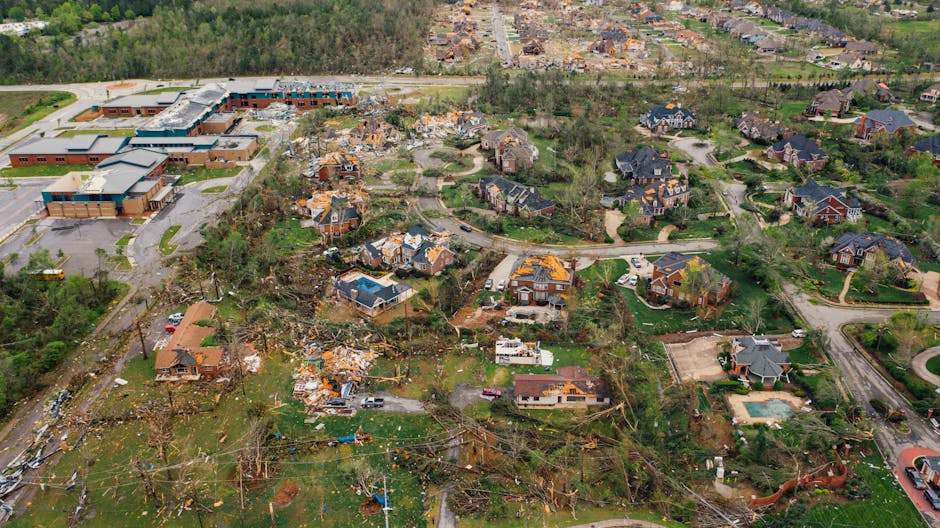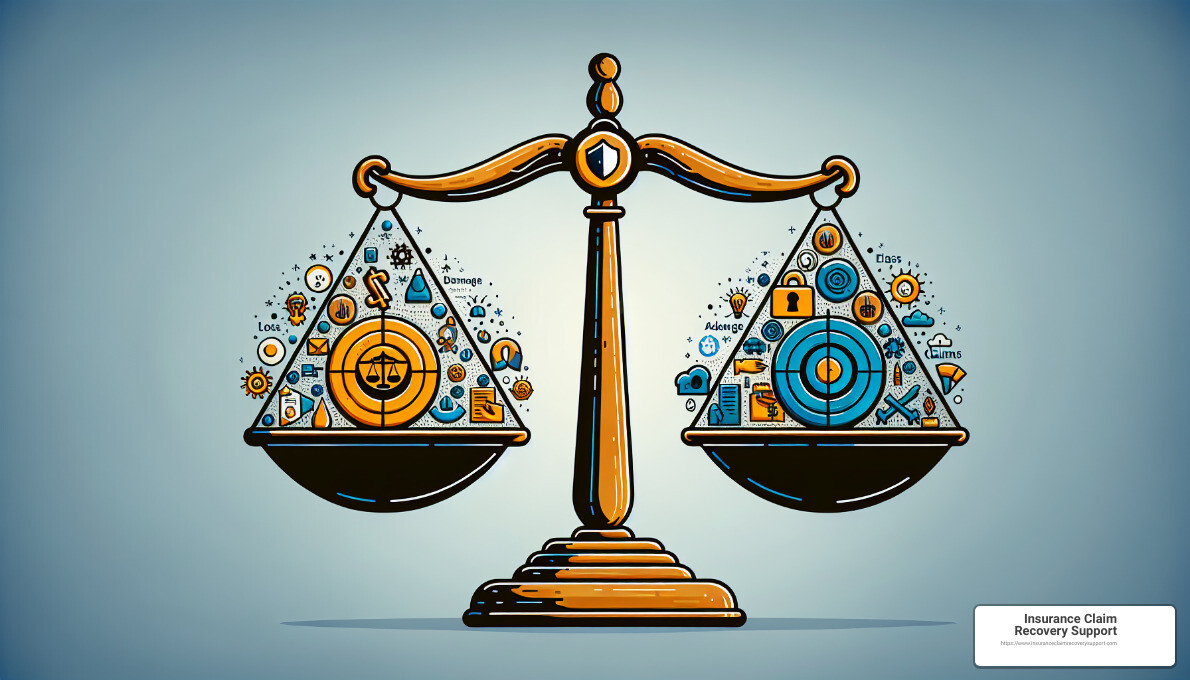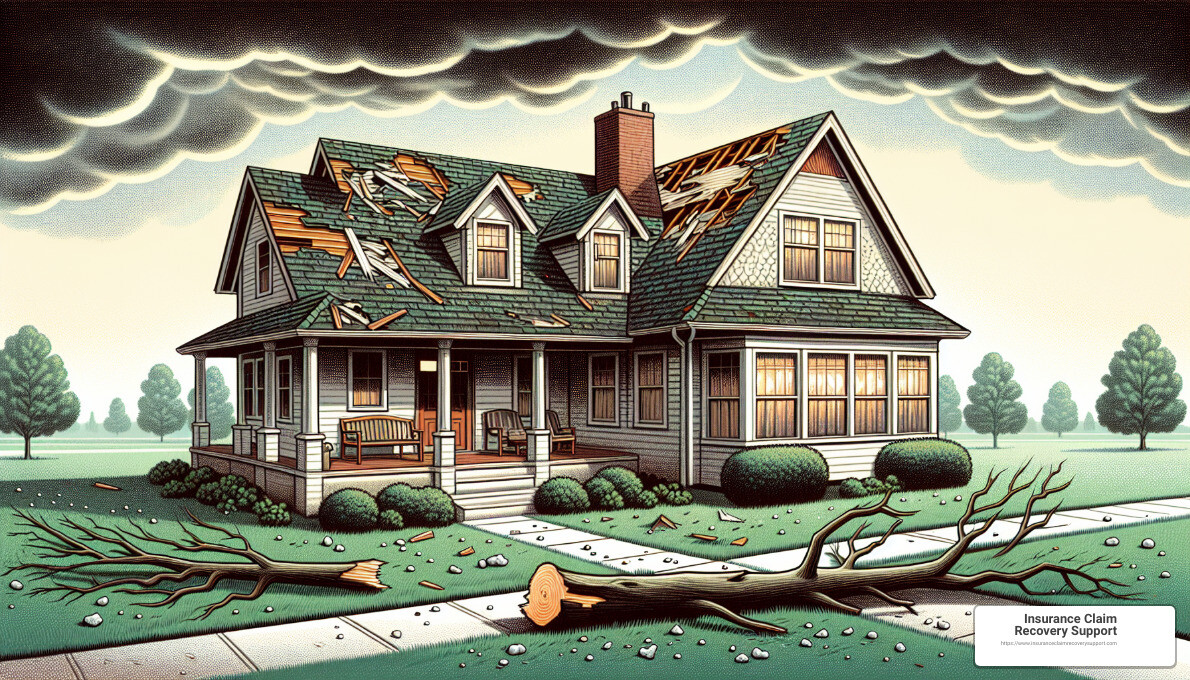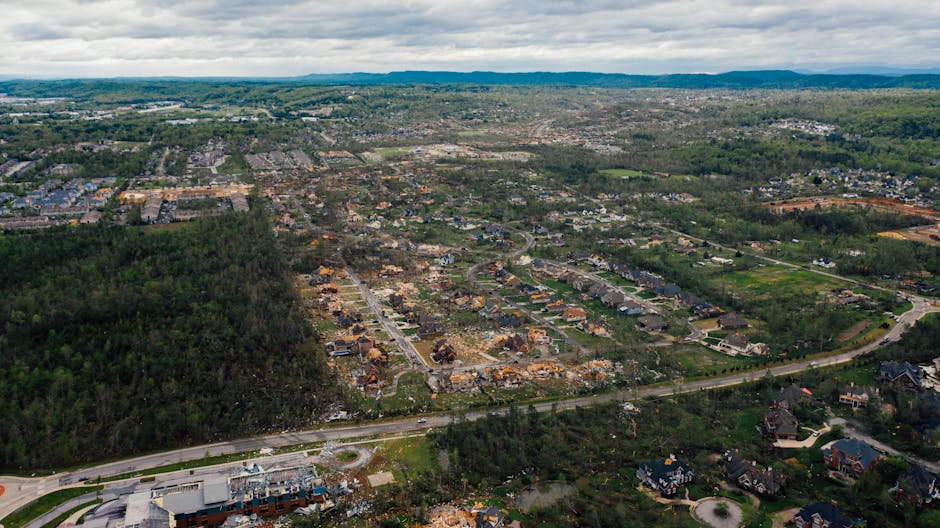When facing property damage, navigating through the insurance claims process can feel like wandering through a labyrinth. The essence of understanding the process lies in recognizing the key players: adjusters. There are primarily two types you’ll encounter: Independent Adjusters and Public Adjusters.
- Independent Adjusters work for the insurance companies. Their role is to assess claims, determine liabilities, and help insurance firms decide on the settlement amounts. They are like the insurance company’s eyes and ears on the ground.
- Public Adjusters, on the other hand, are hired by you, the policyholder. They advocate on your behalf, aiming to ensure you receive the maximum settlement possible for your damages.
This fundamental difference between the two is crucial for policyholders to understand, especially after experiencing property damage that leaves them feeling vulnerable and in need of support. The adjuster you choose to work with can significantly influence the outcome of your claims process.

In simple terms, while both Independent and Public Adjusters play pivotal roles within the insurance landscape, they serve different masters. The choice between them can drastically alter your journey through the insurance claims process. This article aims to shed light on these roles, focusing on Independent Adjusters — defining who they are, what they do, and how their work impacts your insurance claim.
What is an Independent Adjuster?
When you’re navigating insurance claims, understanding the role of an independent adjuster can make a big difference. Let’s break it down in simple terms.
Definition
An independent adjuster is like a freelance detective for insurance claims. They don’t work for just one insurance company. Instead, they can work for many different ones. Their job is to look into claims, figure out what happened, and help decide how much money should be paid out.
Insurance Company Representation
Think of independent adjusters as the middleman between you (the person making the claim) and the insurance company. They represent the insurance company’s interests, but they’re hired from the outside. This means they’re brought in when the insurance company needs extra help or a specialized look at a claim.
Third-party Objectivity
One of the big reasons insurance companies like to use independent adjusters is because they’re seen as more objective. Since they’re not employees of the insurance company, they can provide a fresh, unbiased look at a claim. This is really important in situations where there are a lot of claims at the same time, like after a big storm or disaster.
Why It Matters
Understanding the independent adjuster meaning is key if you’re dealing with an insurance claim. They’re the ones who will be digging into the details of your claim, so knowing their role can help you navigate the process more smoothly. Plus, since they work on behalf of the insurance company but bring an outside perspective, they play a crucial role in making sure claims are settled fairly and efficiently.
By recognizing the unique position independent adjusters hold — balancing the needs of the insurance company with the duty to investigate claims thoroughly and impartially — you can appreciate the critical role they play in the insurance ecosystem. Their objective analysis helps ensure that claims are handled fairly, benefiting both the insurance company and policyholders.
Keep in mind that while independent adjusters are hired by insurance companies, their commitment to objectivity helps maintain the integrity of the claims process, making them an indispensable part of the insurance industry’s framework.
Roles and Responsibilities of an Independent Adjuster
When we talk about the independent adjuster meaning, it’s crucial to delve into what these professionals do. Independent adjusters are the Swiss Army knives of the insurance claims world. Their roles and responsibilities are vast, covering everything from the initial investigations to the final settlements. Let’s break these down:
Investigations
The first step in an independent adjuster’s job is to investigate. This means they dive deep into the details of a claim. They look at the who, what, when, where, and why. This could involve interviewing witnesses, looking at police reports, or inspecting damage to a property or vehicle. Their goal is to gather all the facts.
Verification
Once they have the facts, independent adjusters move on to verification. This is where they check if the claim fits within the policy’s coverage. They review the policy details, ensuring that the incident is something that the insurance is meant to cover. This step is crucial because it determines if the claim can move forward.
Negotiations
Negotiations are where independent adjusters shine. They use the information gathered to negotiate settlements. This means talking numbers. They calculate how much the insurance company should pay out based on the damage, the policy, and the law. Sometimes, this can be straightforward. Other times, it requires a lot of back and forth to reach an agreement that’s fair to both the insurer and the insured.
Settlements
The end goal of an independent adjuster’s job is to reach a settlement. This is the point where an agreement is made on how much the insurance company will pay for the claim. Independent adjusters play a key role in making sure these settlements are fair. They use their expertise to balance the needs of the insurance company with the rights of the policyholder.
Claims Handling
Throughout the entire process, from investigations to settlements, independent adjusters are responsible for handling the claim. This means keeping all the paperwork in order, communicating with everyone involved, and making sure that the claim is moving forward. They’re the ones making sure that everything is done correctly, efficiently, and fairly.

The role of an independent adjuster is to ensure that claims are handled fairly, benefiting both the insurance company and policyholders. They’re the bridge between the complex world of insurance policies and the real-world situations of those making claims. By conducting thorough investigations, verifying coverage, negotiating settlements, and handling claims from start to finish, independent adjusters play a pivotal role in the insurance industry. Their work is a blend of detective work, financial analysis, and negotiation, all aimed at reaching the fairest outcome for everyone involved.
As we move into the next section, we’ll explore the differences between independent adjusters and other types of adjusters, shedding light on why their independent status is so crucial to maintaining objectivity in the insurance claims process.
The Difference Between Independent Adjusters and Other Adjusters
When navigating the insurance claim process, understanding the roles of various adjusters can be a game-changer. Let’s break down the key differences between independent adjusters and other adjusters to clarify their unique positions in the insurance landscape.
Staff Adjuster:
– Who They Are: Staff adjusters are employees of the insurance company.
– What They Do: They handle claims on behalf of their employer, the insurance company, aiming to settle claims efficiently while also protecting the company’s financial interests.
– Key Difference: Unlike independent adjusters, staff adjusters’ loyalty lies with the insurance company, not the policyholder.
Public Adjuster:
– Who They Are: Public adjusters are hired by the policyholder.
– What They Do: They assist policyholders in filing and negotiating claims, striving to secure the best possible settlement for the claimant.
– Key Difference: Public adjusters represent the policyholder’s interests, a stark contrast to independent adjusters who are hired by insurance companies but maintain a level of autonomy.
Insurance Agent:
– Who They Are: Insurance agents sell insurance policies and may also be involved in the initial steps of the claims process.
– What They Do: Their main role is to sell insurance products and provide customer service, which may include guiding policyholders on how to file a claim.
– Key Difference: Insurance agents are not directly involved in the claims adjustment process, unlike independent adjusters who specialize in evaluating and negotiating claims.
Claims Adjuster:
– General Term: ‘Claims adjuster’ is a broad term that encompasses staff adjusters, independent adjusters, and sometimes even public adjusters.
– What They Do: The specific duties of a claims adjuster can vary significantly depending on their employment status (independent, staff, or public).
– Key Difference: The term ‘independent adjuster’ specifically refers to those who are hired by insurance companies but operate independently, offering a unique blend of objectivity and specialized expertise.
The independent adjuster meaning revolves around their unique position of being hired by insurance companies while maintaining the ability to operate with a level of independence that is uncommon among staff adjusters. This independence is crucial, as it allows them to handle claims with a degree of impartiality, focusing on fair settlements based on the evidence and policy terms.
Understanding these distinctions is vital for anyone involved in the insurance claims process. Whether you’re a policyholder seeking assistance with a claim or someone interested in the insurance profession, knowing the roles and responsibilities of each type of adjuster can help you navigate the complexities of insurance claims with confidence.
As we delve further into insurance claims and adjusters, keep these differences in mind. They not only help in understanding the landscape of insurance claims but also in choosing the right support when you need it the most.
help you navigate the complexities of insurance claims with confidence.
As we delve further into insurance claims and adjusters, keep these differences in mind. They not only help in understanding the landscape of insurance claims but also in choosing the right support when you need it the most.
How to Become an Independent Adjuster
Becoming an independent adjuster involves a mix of licensing, education, and the development of key skills. Let’s break these down:
Licensing Requirements
First things first, if you’re looking to become an independent adjuster, you need to be licensed. The requirements for obtaining a license vary from state to state. For instance, Texas is known for its comprehensive licensing process, which is recognized by many other states through reciprocity agreements. This means getting licensed in Texas can open doors for you to work in several other states without needing to get a separate license in each one.
To get licensed, you typically need to pass a state exam. Preparation for this exam can be done through self-study or by taking a pre-licensing course, which is highly recommended for those new to the field.
Education
While the minimum educational requirement is often a high school diploma or GED, having a degree in insurance, finance, or a related field can give you an edge. More important, however, is a solid understanding of insurance policies, regulations, and claim handling procedures. This knowledge can be gained through specific courses offered by claims adjuster training schools.
Skills
Independent adjusters need a unique set of skills to succeed:
- Self-discipline and Motivation: Working independently means you’re your own boss, which requires a high degree of self-discipline.
- Project Management: You’ll often handle multiple claims at once, requiring excellent organizational skills.
- Computer Skills: Proficiency in claims software, especially industry-standard ones like Xactimate, is crucial.
- Communication: Clear and effective communication with claimants and insurance companies is a daily part of the job.
Independent Adjuster Companies
Many independent adjusters work through third-party firms that specialize in claims handling. These companies can provide a steady stream of work, especially in times of high demand, such as after a natural disaster. Working with such a company can also provide valuable experience and training opportunities.
Becoming an independent adjuster requires a commitment to continuous learning and improvement. The field is always evolving, with new laws, technologies, and best practices. Staying ahead means actively seeking out continuing education opportunities and certifications that can enhance your expertise and marketability.
In the end, becoming an independent adjuster opens up a world of opportunities to work with various insurance companies, handle a wide range of claims, and make a significant impact in the lives of those affected by loss or damage. With the right preparation and dedication, it can be a rewarding career path.
In the next section, we’ll explore the vital role independent adjusters play in the insurance industry, highlighting their importance in ensuring objectivity in claims, managing high volumes of claims, and bringing specialized expertise to the table.
The Importance of Independent Adjusters in the Insurance Industry
In insurance, independent adjusters are the unsung heroes who bring balance, expertise, and efficiency to the claims process. Let’s dive into why they’re so crucial.
Objectivity in Claims
One of the key strengths of an independent adjuster is their objectivity. Unlike staff adjusters who are employed directly by insurance companies, independent adjusters work on a contract basis. This means they can maintain a level of impartiality that’s essential for fair claim evaluations.
Think of them as the referees in a soccer game. They’re there to make sure the rules are followed fairly, not to help one side win over the other. This objectivity helps in building trust with the claimants and ensures that the settlements reflect the true value of the claims.
High Volume Claims Management
Imagine a scenario where a natural disaster strikes, leading to thousands of claims being filed in a short period. Insurance companies often find themselves overwhelmed, struggling to process these claims efficiently. This is where independent adjusters shine.
With their flexibility to work for multiple insurers, independent adjusters can be quickly mobilized to areas hit by disasters, providing the much-needed manpower to handle the surge in claims. They help ensure that claims are processed swiftly, allowing affected individuals to get back on their feet sooner.
Specialized Areas Expertise
Insurance claims can range from straightforward property damage to complex cases involving environmental liability or agricultural losses. Independent adjusters often specialize in specific types of claims, bringing a level of expertise that’s invaluable.
For instance, an adjuster with a background in construction can provide accurate estimates for building damages, while those with knowledge of agriculture can better assess losses in agribusiness claims. This specialized knowledge ensures that claims are not only processed efficiently but also accurately assessed.
In summary, independent adjusters play a pivotal role in the insurance industry. Their objectivity ensures fair claim evaluations, their ability to manage high volumes of claims keeps the insurance process moving smoothly after disasters, and their specialized expertise ensures accurate assessments across a wide range of claim types. Remember that the value these professionals bring to the table is indispensable in maintaining the integrity and efficiency of the insurance claims process.
Frequently Asked Questions about Independent Adjusters
Navigating insurance claims can be like trying to solve a puzzle without all the pieces. Independent adjusters are key players in putting some of those pieces together. Let’s break down some common questions to make this topic a bit clearer.
What qualifications are needed to become an independent adjuster?
To kickstart a career as an independent adjuster, you don’t need a mountain of qualifications, but there are some essentials:
– Education: A high school diploma or GED is the starting point. While a degree isn’t mandatory, courses in insurance, finance, or related fields can be beneficial.
– Licensing: Most states require you to pass an exam to get a license. It’s like getting a driver’s license but for handling insurance claims.
– Skills: You’ll need a mix of soft skills like self-discipline and communication, and technical skills, such as being handy with claims software like Xactimate.
How do independent adjusters get paid?
Independent adjusters usually earn their keep in one of two ways:
– Per Claim: They get paid for each claim they handle. Think of it as being paid per project.
– Salary: Some adjusters work on a salary basis for third-party firms that contract with insurance companies.
It’s a bit like being a freelancer versus being on staff. The payment structure can vary based on the company and the volume of work.
What is the difference between an independent adjuster and a public adjuster?
This is where it gets interesting. Both deal with insurance claims, but from different sides of the fence:
– Independent Adjuster: Works on behalf of the insurance company. They’re like the company’s detective, figuring out how much the claim is worth.
– Public Adjuster: Represents you, the policyholder. They’re your personal advocate, helping you get the best possible settlement from the insurance company.
Imagine you’re in a courtroom drama. The independent adjuster is the defense, while the public adjuster is your lawyer. Both are crucial, but they have different roles in the insurance claims process.
As we peel back the layers of the insurance claims process, understanding the role and value of independent adjusters becomes clear. They’re the bridge between complex insurance policies and the people affected by life’s unexpected events. With their expertise, navigating the aftermath of these events becomes a smoother journey. Moving forward, whether you’re dealing with a natural disaster in Texas or a minor fender bender, knowing the ins and outs of independent adjusters can make all the difference in your insurance claim experience.
Conclusion
In wrapping up our discussion about the critical role of independent adjusters, reiterate how entities like Insurance Claim Recovery Support stand out in the realm of insurance claims, especially in the context of Texas fire and storm damage. Our dedication to maximizing settlements for our clients is not just a service; it’s a commitment to ensuring you’re fairly compensated in times of need.

Maximizing settlements is at the heart of what we do. We understand that the aftermath of property damage can be overwhelming. That’s why we’re here—to take the burden off your shoulders. Our team of professionals is adept at navigating the complexities of insurance policies and negotiations. We work tirelessly to ensure that your settlement reflects the true extent of your losses, allowing you to focus on recovery and rebuilding.
The unpredictable weather in Texas, from fierce storms to devastating fires, underscores the importance of being prepared and having a knowledgeable ally by your side. Our awareness of the latest Texas fire and storm damage news means we’re always ready to act swiftly on your behalf. This proactive approach is crucial in the initial stages of filing a claim and throughout the entire process.
Understanding the insurance claim process in Texas cities is another area where we excel. Each city may have its nuances in terms of risks and regulations. Our extensive experience across Texas equips us with the insights needed to navigate these local variations effectively. Whether you’re in Houston grappling with hurricane damage or in Dallas recovering from a hailstorm, we’re familiar with your city’s specific challenges and opportunities.
In conclusion, the role of an independent adjuster is pivotal in the insurance claim process. And when it comes to choosing someone to stand in your corner, knowledge, experience, and dedication matter. At Insurance Claim Recovery Support, we embody these qualities, striving to ensure that every client we represent achieves a fair and just settlement.
Let us be your advocate. Whether you’re facing the aftermath of a storm, fire, or any other insured loss in Texas, our team is here to guide you through the claims process, every step of the way. Together, we can navigate the complexities of insurance claims, aiming for the maximum settlement you deserve.









